As I mentioned in my last podcast post, I am trying to present all of my YouTube conversations in three different formats when possible. Just as we all have different preferences for how to play the games we love, we also have different preferences for how we engage with reviews and discussions and so I have provided three ways for you to engage in this Geekerati discussion. You can watch the video above, listen to the podcast, or read the post below.
Robin D. Laws is one of the most thoughtful writers of game mastering advice in the entire tabletop rpg hobby. He’s written extensively about how to run role playing games in order to maximize the fun quotient for your group's players.
His book Robin's Laws of Good Game Mastering sits on my DM-prep shelf right next to Aaron Allston's peerless Strike Force as one of two "go to" guides I look to when I'm facing a challenge in my game mastering. While there are several other books on the shelf (technically shelves), I am consistently impressed by how often the other volumes contain information that builds upon ideas in these two books.
To phrase things another way, Robin D. Laws has influenced the way I run games more than any writer/game designer other than Aaron Allston.
There’s a word for a player who consistently takes his fun at others’ expense, even after you’ve pointed out that his is what he’s doing: goodbye. — Robin D. Laws (2016)
It was this very admiration that led me to be surprised when I recently reread a Pelgrane Press article he wrote on their See Page XX blog in 2016 entitled "Four Players and a Murder Hobo." My surprise was rooted in a quote from Robin’s essay that struck me as particularly harsh. It’s where he said, “There’s a word for a player who consistently takes his fun at others’ expense, even after you’ve pointed out that this is what he’s doing: goodbye.”
This angry response suggested to me that Robin must be thinking of a particular player or situation and that this led Robin to give potentially bad advice that seemed more like an angry snap judgment than a thoughtful essay.
I was at minimum surprised at Robin's possible characterization of a gaming phenomenon that has occurred more than once at my gaming table, though more frequently at convention and one-shot store games than in my home games. It is also a gaming phenomenon that Robin's past writings have helped me to overcome and engage with productively. At least, I thought that I had gleaned insight in the past.
This conflict between my perception of a problem and how to engage with it, and Robin's advice and anger in this essay, have prompted me to write this post and respond to an error I believe Robin may be making in his analysis. In my assessment, he seems to be leaving a significant variable out of his analysis, but more on that later.
What is this problem and what is Robin's advice?
Robin begins his article in an engaging manner and provides three brief sinister situations that might occur in play and disrupt an entire campaign.
“Okay, so now that the monks are locked inside the tower, I set fire to it. That’ll teach them to look down their noses at me! Burn, monks, burn!”
“As soon as it’s my turn to guard the prisoner, when I’m sure the others are all asleep, I stride over to him and slit his throat.”
“I’m tired of taking guff from the gnome king. I have my heat shield cloak on, so the confined space of this throne room? One word: fireball!”
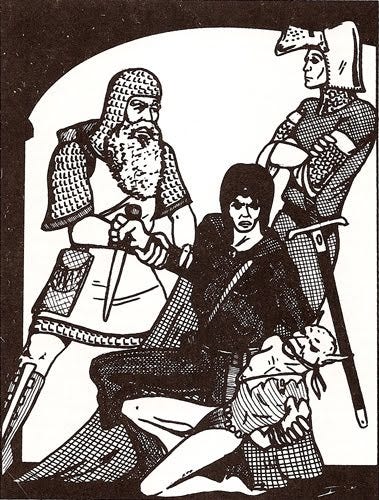
I'm not going to spend any time evaluating the specifics of any one of these examples, the rabbit hole of that analysis would be unending, but I will say that each of these examples is reflective of a single player engaging in a style of play that is not collaborative. Robin calls it "that classic moment of roleplaying dysfunction, when one person in the group decides it’s time to cross the line from lovable rogue to psychopathic scumbag."
The key issue Robin is highlighting in this circumstance is that a player is asserting an agency over the storyline, and game play, that significantly affects the logical consistency of the narrative and more importantly forces other players to suffer the consequences of the action without ever taking into account the real life feelings of those players and the GM.
Phrased that way, this is a significant problem on the part of the player.
Before I move onto Robin's recommendations, and my eventual response, it is important to note that this is only a problem when it is done in a disruptive way and this is something that Robin concedes in the article. If all of the players expressed wishes to shift from Consulting Detectives to Anarchist Mass Murderers, this would only be the moment the campaign shifted from heroic to villainous. It might not make much narrative sense, in a literary way, but it could be fun.
On the other hand, if it is only one player who makes the shift and declares the action then there is a potential issue here. It's what we in Political Science might call a "collective action" problem. How do you get a "murder hobo" to comply with the rest of the group's norms in order to promote an equitable distribution of a "public" good? In this case, the public good is the entertainment value of the campaign which is threatened by an antagonistic actor - something more significant than a mere free rider problem. How do you incentivize the player to participate in the norms that produce a particular good or outcome, when that player seems dedicated to the pursuit of a different good or outcome?
This is a problem to which Robin offers a couple of solutions. First, he recommends breaking down the fourth wall and confronting the player via a couple of strategies. Read his article for the full analysis, but the short version is that Robin recommends confronting the player and letting the consequences of the action be known to all and possible expulsion of the player.
I'd like take a step back to offer another alternative for Robin and other Game Masters to consider. It still likely involves breaking the fourth wall, but it shifts the focus of analysis from merely the "single deviant player" and looks at a host of variables. If having fun during a role playing game can said to be a measurable dependent variable.
And I don’t meant to descend too deeply into the world of felicific calculus, but let's imagine that we can call this fun RPGh - the h is for hedons - and that this feeling of enjoyment has several contributing variables that include the Rules set (R), the Setting (S), the Players (P1, P2, P3… Px) the Murder Hobo (PMurderHobo), and the GM.
Robin's analysis focuses solely on the player and GM variables and it seems that he is leaving out a couple of potential constructs. For example, he leaves out of discussion the Rules set and the GM with regards to the setting up of the situation and the creation of resentment on the part of the player. While he technically also leaves out a Setting, his discussion of verisimilitude includes an understanding of their importance. Robin also assumes that all four of the non-Murder Hobo players have similar goals and commitment to RPGh and that the Murder Hobo no longer does. If I was to represent the pleasure arrived at in this game, I might represent it this way:
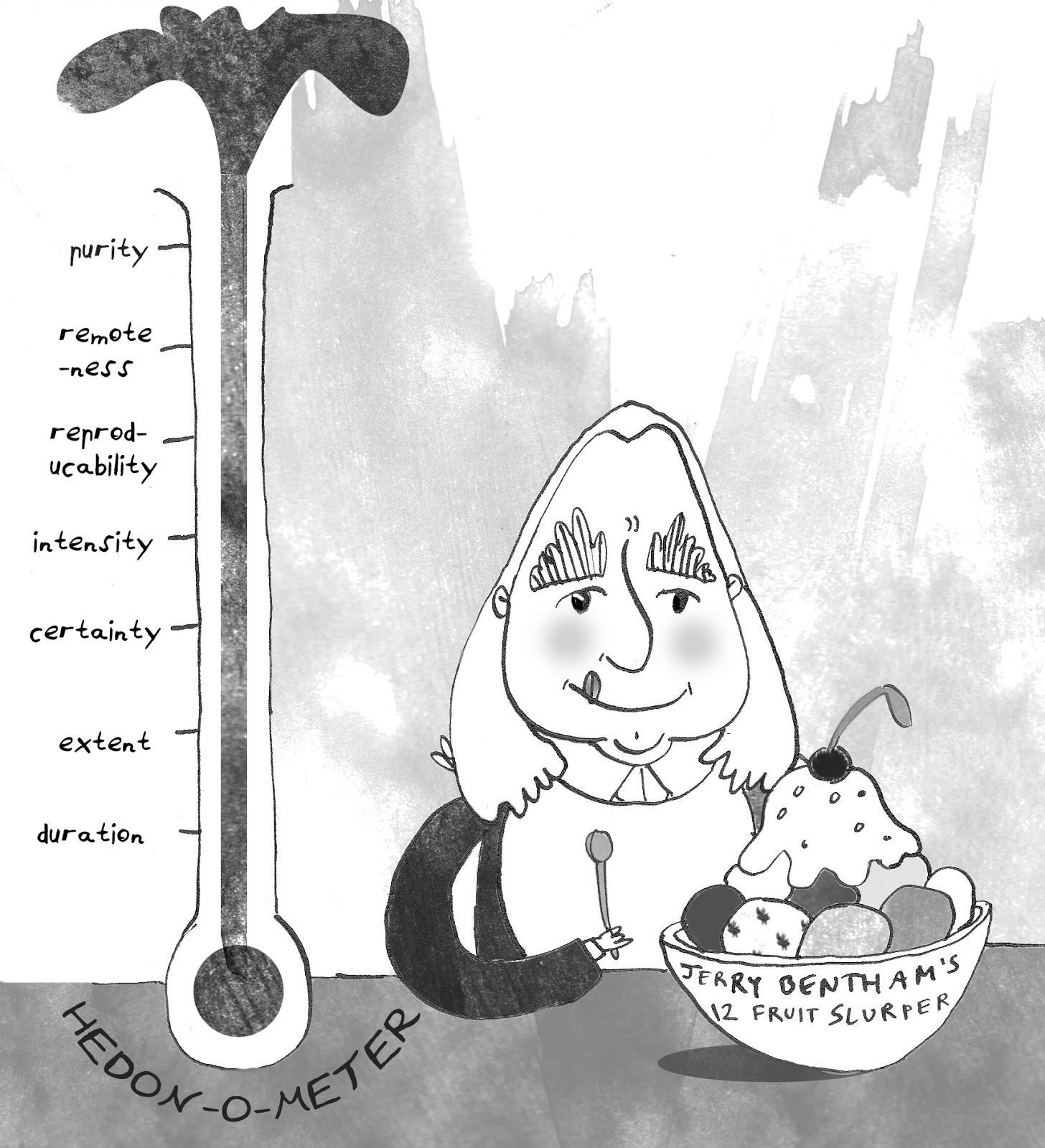
At first glance, this reduction of gaming experience to hedonic mathematics is kind of ridiculous. I've presented an artificially reductive example that equates the amount of fun a gaming group is having to a baffling and almost incoherent equation.
Who do I think I am, the Jeremy Bentham of RPG Theory? No. I'm only doing this to highlight my point. That point being that Robin's article has either assumed, or stated outright, that each of the variables above has been a positive contributor to the entertainment experiences of those involved with only one exception. That exception is the Murder Hobo. In Robin's argument, narrowly construed so that only one player wants to be a Murder Hobo otherwise the Murder Hobo hedons (damn you Bentham!) would be the Dependent Variable, and that the group desires play that incorporates "fantasy of action WITH social constraint" whereas the Murder Hobo has advocated one without social constraint. Unstated, but also implied, is that the Game Master wants a play that engages in "fantasy of action WITH social constraint" as well, otherwise there would be no need for intervention.
But none of Robin's article touches on several questions that might be central in this discussion because he leaves out analysis of the Game Master in his essay. This is surprising given his emphasis in Robin's Laws on the importance of the Game Master, his Rule 0 is "Roleplaying games are entertainment; your goal as GM is to make your games as entertaining as possible for all participants." If the GM is so important, that leaves the following questions unanswered by Robin.
"How well did the Game Master understand the players?"
"Did the Game Master provoke the Murder Hobo into this action?"
"Why is the Murder Hobo a part of the group in the first place?"
Given that each of the examples that Robin gave, and without going down the rabbit hole of individual analysis, seems to include a disconnect between what the Game Master is offering the Murder Hobo player and that what Robin Laws would term that player's "emotional kick." Rather than this being primarily a problem player, I think that it is possible that the Game Master did not understand the playing group sufficiently.
For example, one might imagine that the Murder Hobo player is what Robin calls "The Butt Kicker" in Robin's Laws. If this is the case, did the Game Master understand this and incorporate sufficient mayhem to satisfy that player. Is there an imbalance in the group of "Method Actors" to "Butt Kickers"? If there is, it is incumbent upon the Game Master to acknowledge this and set campaign norms that satisfy as many players as possible. Maybe the descent into maniacal mayhem was avoidable had the Game Master maintained sufficient attention to the various player's emotional kicks.
Additionally, in any situation of a player acting out, the Game Master must consider whether he or she is in fact the source of the problem. During a heavily Role Playing oriented section, did the Game Master not so subtly over snark the player's character in order to get the action back on target? I know that I have been guilty of this from time to time, less now than when I was younger, but I'm human and have sometimes mildly antagonized people who annoyed me during/before play. In this case, the Game Master is the problem and needs to address that issue. The breaking of the fourth wall in this case may require an apology on the part of the Game Master because the Game Master was the one actually reducing RPGh. Given how much work Game Mastering is, some players are willing to tolerate a lot of lapses into poor GMing in order to just get on with the gaming. While it may or may not be the case, a Game Master should whether he or she contributed to the rebellion and if so what can be done about it.
Lastly, the Game Master needs to ask why the Murder Hobo player is gaming with the group in the first place. If it's because it is a convention game, then more abrupt tactics might be necessary to engage the player because of the need to ensure the other players are having a good time. If the person is a close personal friend then there are other considerations. Partly this goes back to the answer to the first question, but adds another layer. In this case it isn't just whether the Game Master has a proper understanding of the player, it's also whether the player had a proper understanding of the group's norms. It is incumbent upon a Game Master to convey to new players the group's norms before play event begins. Is your game more role playing heavy? Is it more combat heavy? How much player agency is there to affect the world? How realistic are the settings the group prefers? These are all things that the Game Master should be trying to inform all players of from the beginning. One cannot assume norms across the hobby. Reading early issues of Alarums & Excursions quickly disabused me of the notion that all gamers played anything I would have recognized as fun, though it also demonstrated to me that I would have had a great time with the right group in that era.
I highly recommend reading Robin's article at Page XX, but I wish that he had focused not merely on "the Murder Hobo as wrongdoer" and looked at the issue more holistically. Hopefully, this essay will provoke some discussion of the issue and provide me with even more information I can add to my DM-prep shelf...and hard drive.





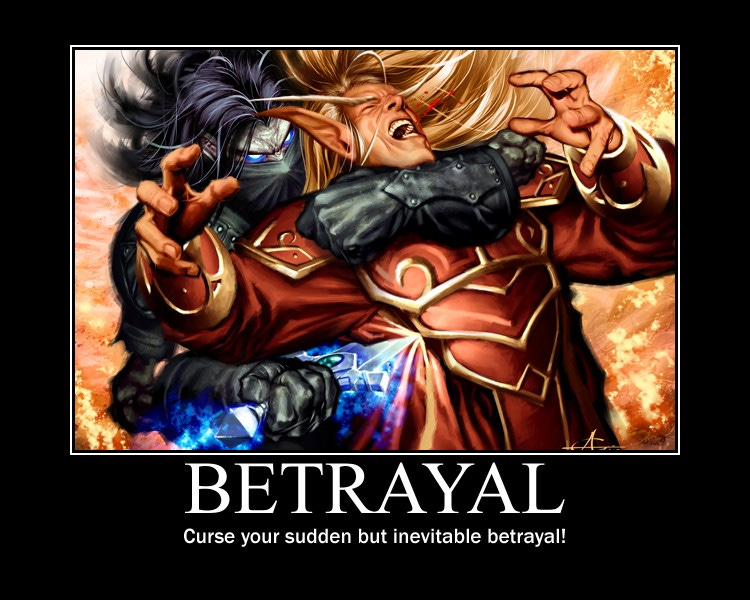
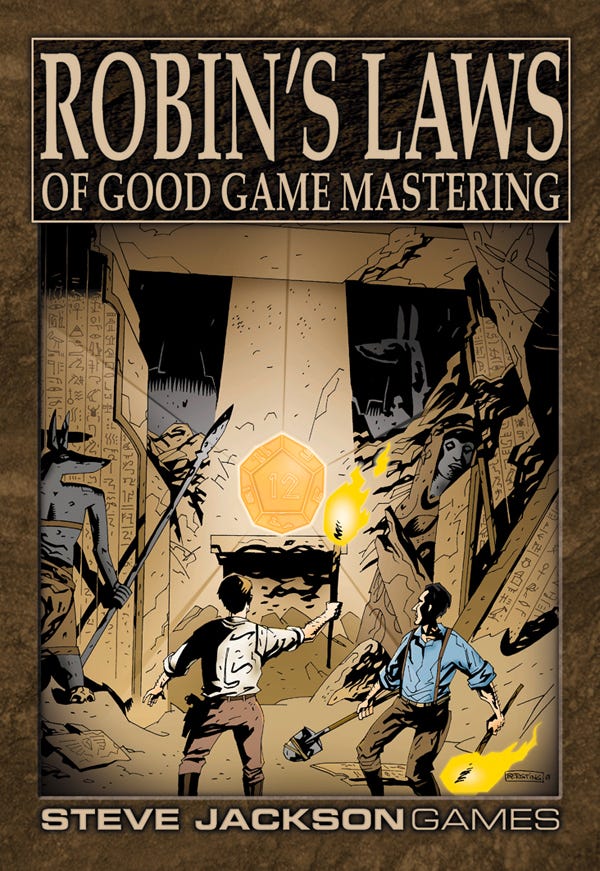
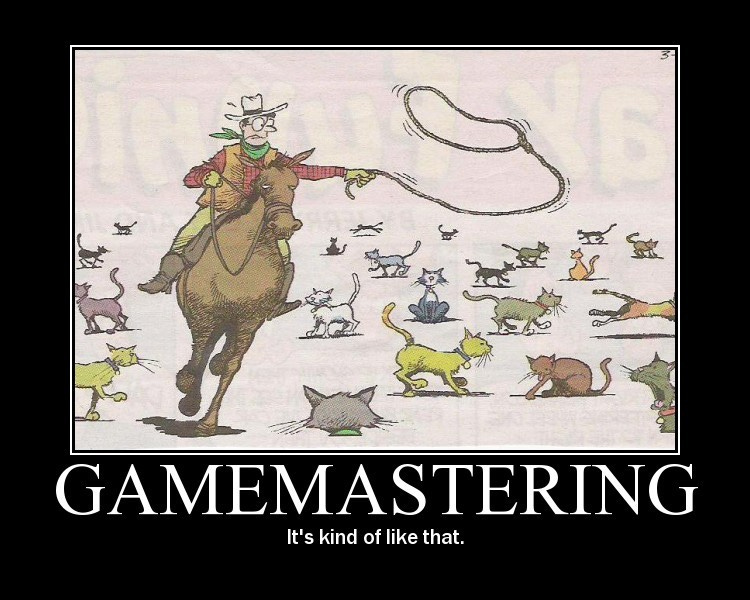

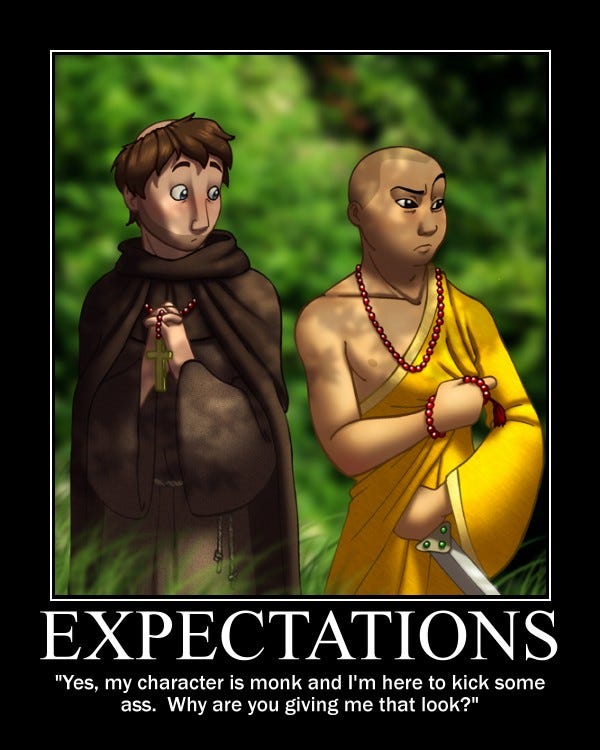


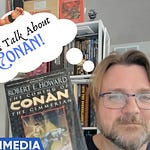





Share this post